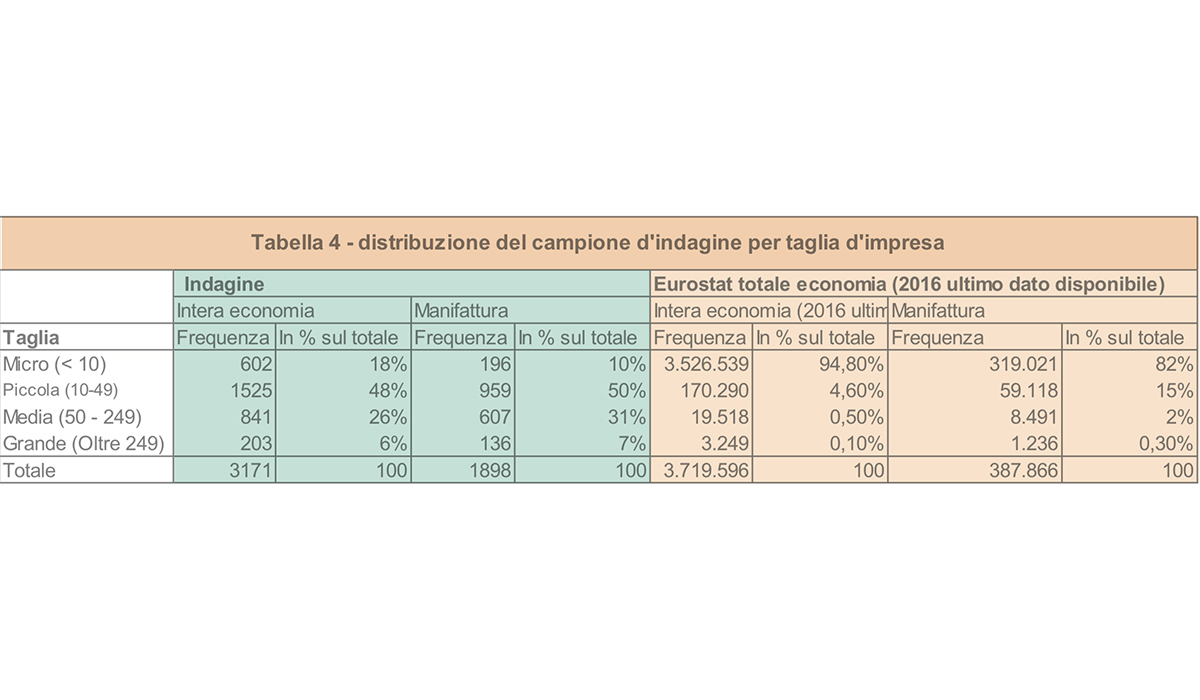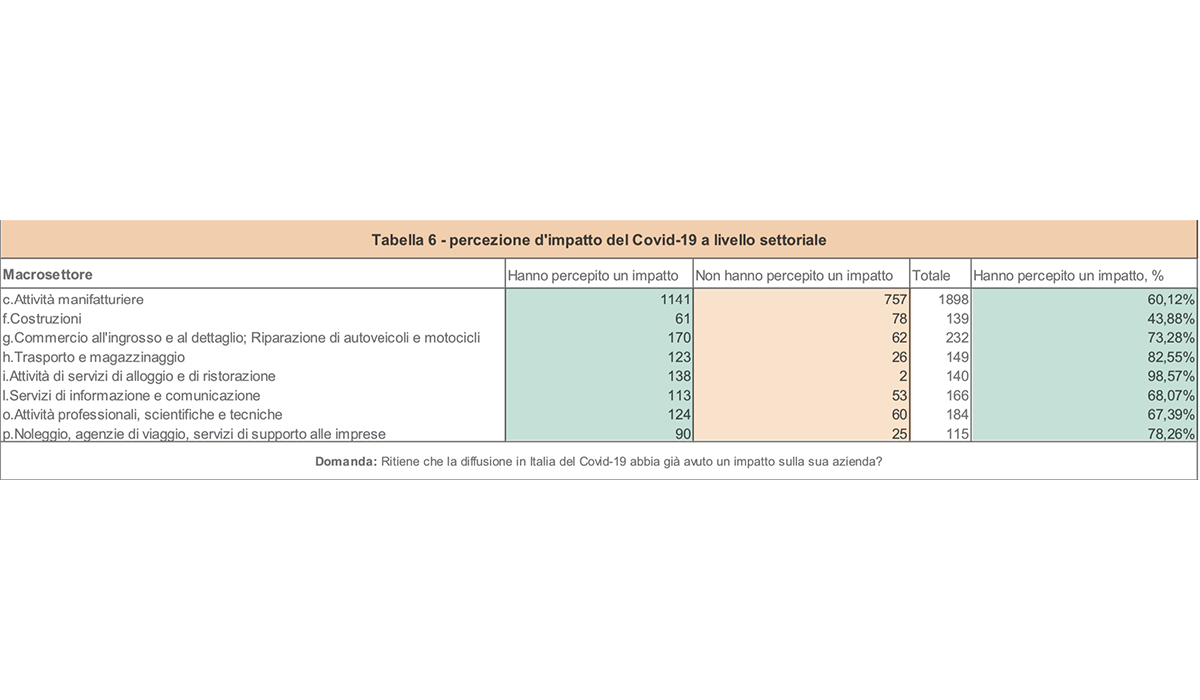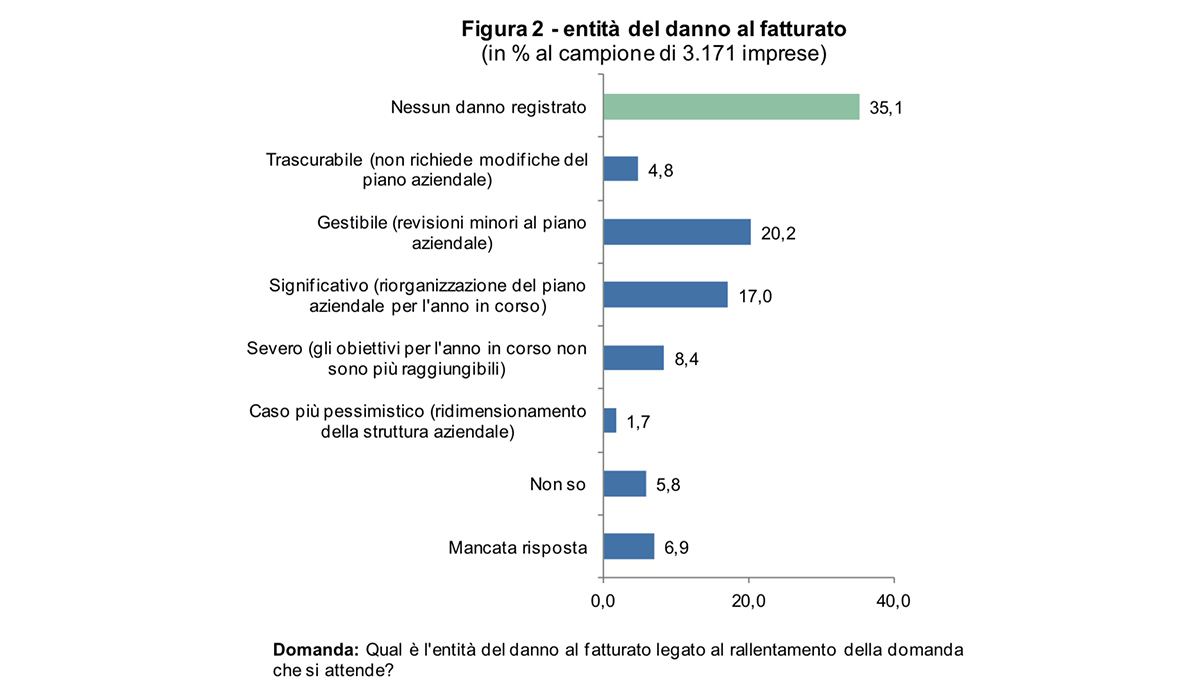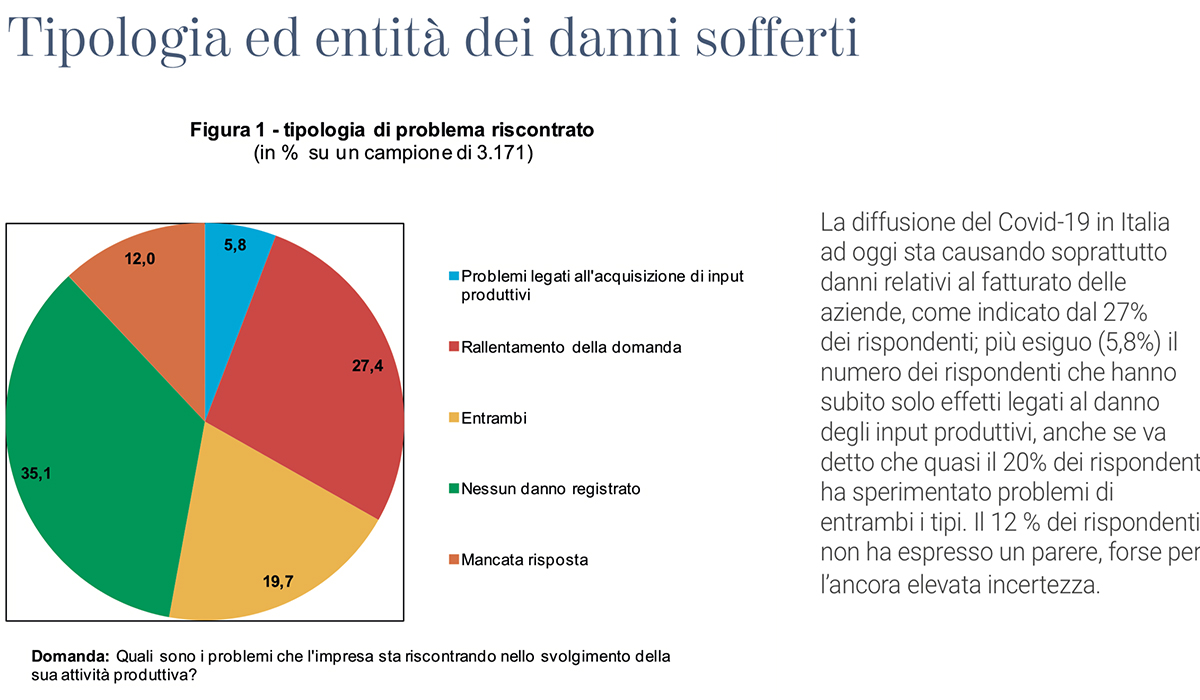Covid19: What the Companies Say
Confindustria has set up a task force for the health crisis and conducted a survey through an on-line questionnaire to hear what Italian companies (members and non-members) have to say. Let’s look at the numbers.
Confindustria has issued the results of a survey carried out on Italian companies following the initial government provisions to face and contain the Covid-19 emergency and which we are reporting in full below (source: https://www.confindustria.it/coronavirus). In participation terms, the high degree of concern resulted in a considerably high response to the survey coming from, to date, over 5,500 companies (the analysis reported here is based on over 4,000 replies, which, after data cleaning, fell to 3,171). The crisis climate also affected the sample composition which, due to its nature, cannot be statistically representative of the Italian company population but is highly indicative of how the emergency is being perceived, both on a territorial and sectorial scale. The survey’s first result confirms that the spread of Covid-19 in Italy has relegated the already extremely serious problems linked to the epidemic in China to second place. To be more precise, the analysis shows that 65% of respondents recorded impacts on their own business activities due to the spread of Covid-19 in Italy. This result was higher than average in Lombardy and Veneto where the figure stood at around 70%. The impact was all-pervading for hospitality and catering businesses where 99% of respondents reported having suffered negative effects. The same can be said for activities linked to transport services.

As regards manufacture, 60% of the companies interviewed reported negative effects with more evident problems in the clothing, leather goods, chemical and electronic sectors. The spread of Covid-19 in Italy is currently causing the most damage in terms of company turnover, as 27% of the respondents declared. A smaller number of respondents (6%) had only experienced damaging effects linked to productive input, even if it should be said that almost 20% of respondents had suffered from both. As for the amount of damage in turnover terms, over 35% of the companies involved in the survey had not suffered, while 25% claimed to have experienced negligible or manageable impacts that could be adjusted in the business plan. However, 17% of the companies reported that the damage was significant because it implied a re-organization of the business plan. About 10% of the companies was already afraid of not being able to reach this year’s objectives and may even have to resort to down-sizing the company structure. Given the high level of uncertainty, many companies did not feel they were able to reply to the survey. 5% of respondents declared that they had already had to resort to layoffs since the spread of Covid-19.

The survey also showed that 24% of respondents had undergone damage due to the non-participation or cancellation of trade shows and promotional events. Through the questionnaire, entrepreneurs were also able to directly express their own worries by responding to open questions. The most outstanding of these concerns were the drop in demand, calculated by reduced consumption; order postponement or cancellation and, for the tourism industry, booking cancellations. Another recurrent concern was linked to the loss of image that could become a long-term problem for Made in Italy’s global reputation. Difficulties of a more practical nature followed, such as logistics, the impossibility of meeting customers, suppliers and staff. A fundamental point that emerges is the fear and uncertainty that is pervading the country. Lastly, many respondents found it hard to estimate the extent of the damage given that the Covod-19 emergency is both national and international and still ongoing.
It is not to be excluded that Confindustria could carry out another survey among companies in the coming weeks to understand what the entrepreneurs need and which legislative tools can be enacted in the medium-term to meet those needs.







